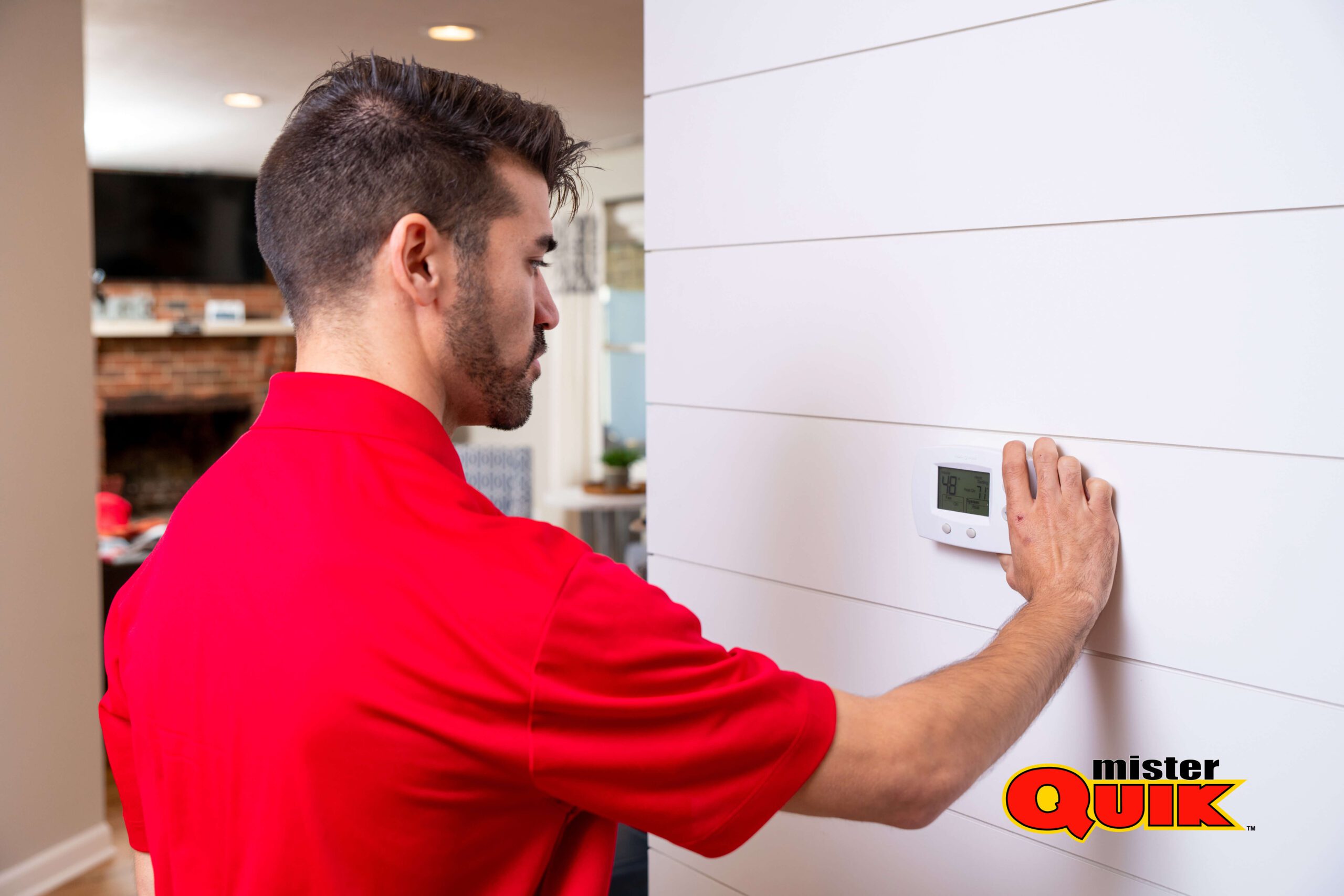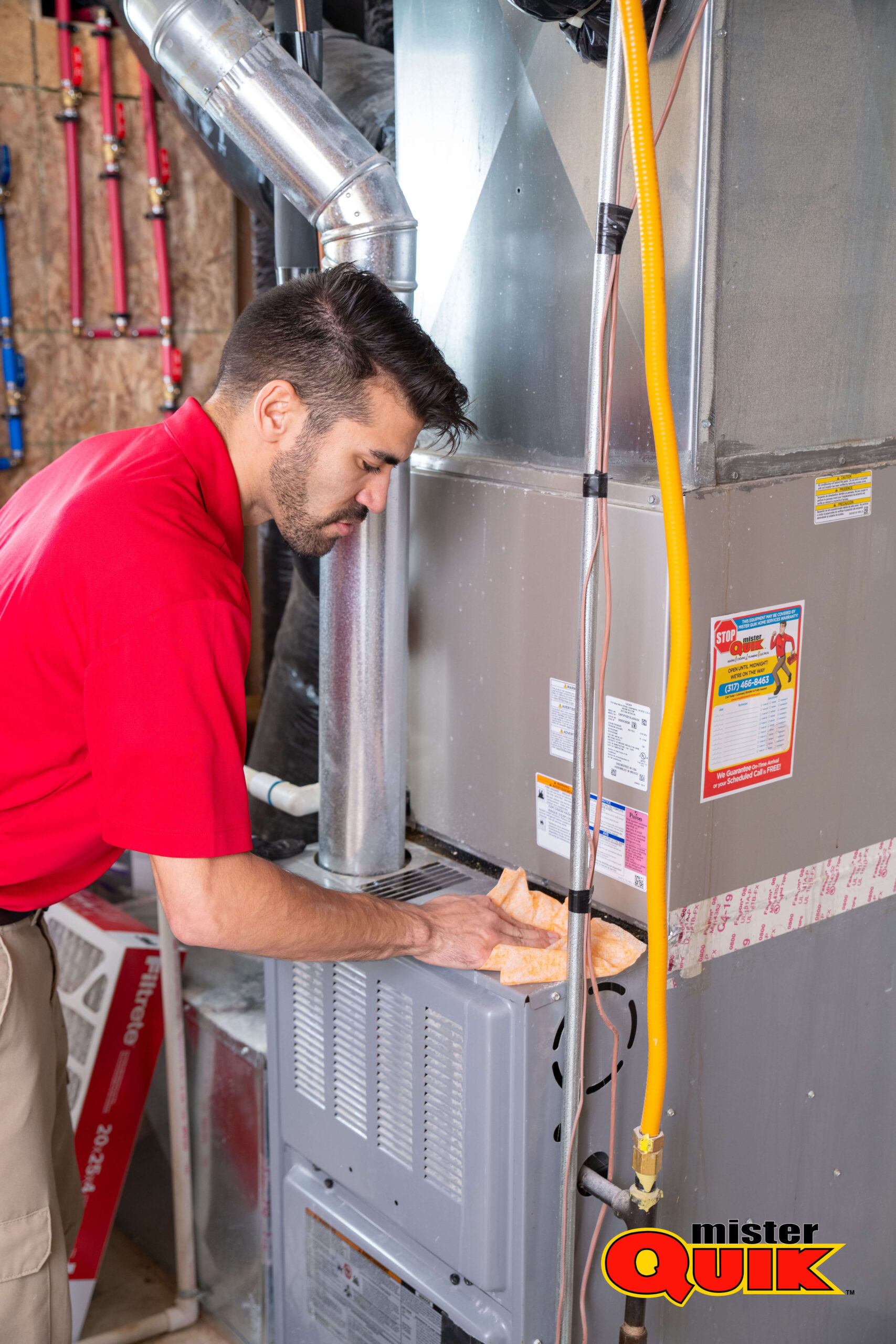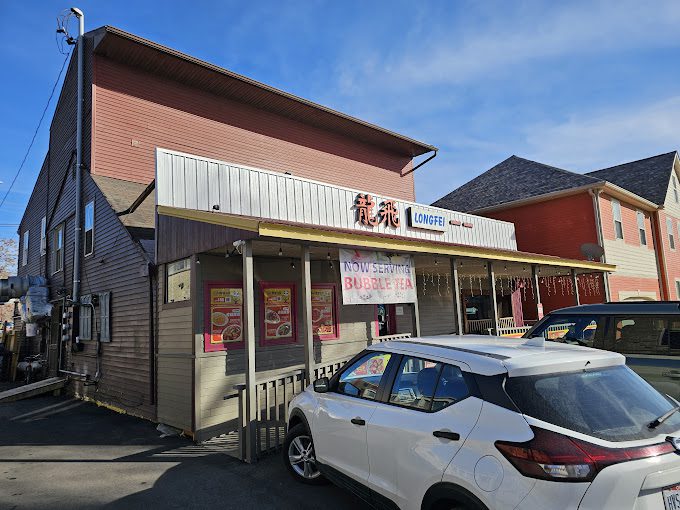Bloomington Heat Pumps
Schedule on your own without making a call. Click the button below to get started!

How Much Can Bloomington Heat Pumps Save You?
Concerned about rising energy bills, especially with your current heating system? Look no further than Mister Quik! These versatile wonders offer both heating and cooling, but do they truly save money? Let’s explore the potential benefits:
Energy Efficiency Champion: Unlike traditional furnaces or electric heaters, heat pumps move heat instead of generating it, resulting in significantly lower energy consumption. This translates to potential annual savings of 20-40% on your heating and cooling costs, putting more money back in your pocket.
Double Duty, Double Savings: Not only do heat pumps heat your home in winter, but they also act as air conditioners in summer. This eliminates the need for separate systems, saving you installation and maintenance costs in the long run.
Environmentally Friendly Hero: Heat pumps use electricity, a resource with cleaner options like solar power, and don’t rely on fossil fuels. This means reduced carbon footprint and a more sustainable choice for your home and the planet.
Government Incentives: Switching to a heat pump sometime comes with federal and state tax credits or rebates, further offsetting the initial investment. Be sure to explore available incentives in your area.
What To Know Before Purchasing A Heat Pump For Your Home?
Worried about your current heating system’s efficiency or environmental impact? Mister Quik offers a compelling solution, providing both heating and cooling in one system. But before you jump in, here’s what you should know:
Look for high SEER (cooling) and HSPF (heating) ratings for better energy savings. Consider inverter technology for even higher efficiency.
An undersized heat pump won't keep you comfortable, while an oversized one wastes energy. Consult an expert to determine the perfect size for your Bloomington home.
While modern heat pumps work well in Bloomington, extreme cold snaps may require a backup heating source. Discuss this with your HVAC professional.
The initial cost of a heat pump is higher than traditional systems, but potential energy savings and government incentives can offset the investment over time. Mister Quik Home Services can provide accurate estimates and discuss available incentives in Bloomington.
Heat pumps start to lose efficiency at around 40 degrees F and become less efficient than furnaces at around 25 degrees F. Heat pumps continue to be effective at cooling the indoors, even at high temperatures. In the South, it rarely gets below 25 degrees.
In colder climates, 95% efficient gas furnaces fare better than ENERGY STAR® heat pumps. And, due to the relatively lower cost of natural gas versus electricity, lifetime operating costs should be considered as well. Your local expert can help you navigate the energy efficiency comparisons for your home.
The amount of energy consumed by heat pumps can vary greatly, ranging from 0.802 kilowatt-hours to 5.102 kilowatt-hours per hour.
It isn’t required to have a heat pump and furnace together but there can be some advantages. In areas with very cold winters, it’s often more energy efficient to heat the home with a furnace and use the heat pump for cooling.
What Size Heat Pump Do I Need?

Investing in a Bloomington heat pump is a fantastic choice for energy efficiency and comfort. But choosing the right size can be confusing. Don’t worry, Mister Quik Home Services is here to help! Understanding your heat pump needs involves more than just square footage. Let’s break it down:
- Square Footage: While a general rule suggests 1 ton per 500 square feet, it’s not the whole story.
- Climate: Bloomington’s warm summers and cool winters influence your heating and cooling demands.
- Insulation: A well-insulated home needs less heating/cooling power than a drafty one.
- Lifestyle: Do you entertain often? Are there sun-drenched rooms? These impact your system’s load.
- Right Size = Right Comfort: An undersized heat pump struggles to keep up, leading to discomfort and higher energy bills.
- Oversized is Not Ideal: An oversized unit cycles on and off more frequently, reducing efficiency and lifespan.
- Air-source: Most common, extracts heat from the air, works well in moderate climates like Bloomington.
- Geothermal: Uses underground heat, highly efficient but requires more complex installation.
- Mini-split: Ductless option, ideal for single rooms or homes without existing ductwork.
Types of Heat Pumps
Worried about your current heating system and considering a heat pump? You’re making a smart choice! But with various options available, selecting the right Bloomington heat pump can seem overwhelming. Let’s break down the main types to help you decide:

These popular pumps extract heat from the outside air, even in cold climates like Bloomington. They're cost-effective and easy to install, making them a popular choice for moderate weather regions.

These champions tap into the Earth's constant underground temperature, offering the highest efficiency and lowest operating costs. While requiring upfront investment for installation, they provide long-term savings and environmental benefits.

Similar to geothermal, these pumps utilize heat from nearby bodies of water like lakes or wells. They offer high efficiency but require access to a suitable water source, limiting their applicability in Bloomington.
Should You Replace An Existing Gas Furnace With A Heat Pump?
Facing a failing furnace in Bloomington can be stressful. But before diving into a traditional furnace replacement, consider the eco-friendly and potentially cost-saving alternative: Bloomington heat pumps.
But should you ditch your gas furnace for a heat pump? Let’s weigh the pros and cons:
Pros:
1. Energy Efficiency:
Heat pumps use electricity to move heat, not generate it, leading to significantly lower energy consumption compared to gas furnaces. This translates to potential cost savings on your heating bills, especially if you have access to renewable energy sources like solar power.
2. Dual Functionality:
Bloomington heat pumps act as both heaters and air conditioners, eliminating the need for separate systems. This saves you on installation and maintenance costs in the long run.
3. Environmentally Friendly:
Heat pumps use electricity, which can be sourced from cleaner options like solar, and don’t rely on fossil fuels.
4. Government Incentives:
Switching to a heat pump sometimes comes with federal and state tax credits or rebates, further offsetting the initial investment.
How Long Should A Heat Pump Run?
Living in Bloomington means battling fluctuating temperatures, and your trusty heat pump is there to keep your home comfortable year-round. But seeing it run constantly might raise concerns – is it normal? Let’s clear the air!
Unlike traditional furnaces that run continuously, Bloomington heat pumps work in cycles. They turn on, heat your home to the desired temperature, then shut off. This cycle repeats to maintain comfort levels.
In mild weather, your heat pump might cycle 2-3 times per hour, running for 10-20 minutes each cycle. This ensures efficient operation and avoids constant on/off strain.
During colder Bloomington weather, your heat pump might run longer or even continuously. This is normal as it works harder to maintain your desired temperature. Don't panic! As long as it cycles occasionally and doesn't run abnormally hot or noisy, it's likely working as intended.
However, if your heat pump runs constantly even in mild weather, or if it runs hot, makes unusual noises, or struggles to maintain temperature, it's time to call Mister Quik Home Services. These could indicate potential issues requiring professional attention.
By implementing these energy-efficient measures, you can significantly reduce your heating costs and enjoy a more comfortable living environment.
- Check air filters and replace if dirty.
- Ensure vents and registers are open and unobstructed.
- Inspect outdoor unit for debris or ice buildup.
- Check the indoor unit for loose parts or worn bearings.
- Verify thermostat settings and replace batteries if needed.
- Check for blocked airflow around the indoor and outdoor units.
- Inspect ductwork for leaks and seal them.
- Consider upgrading to a more energy-efficient heat pump.
- Check circuit breaker and reset if tripped.
- Ensure the thermostat is set to the correct mode and temperature.









